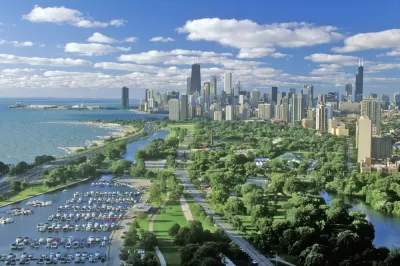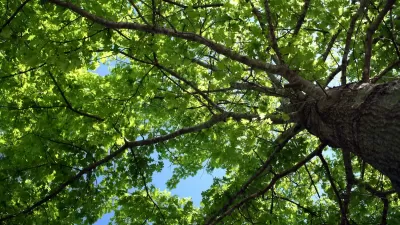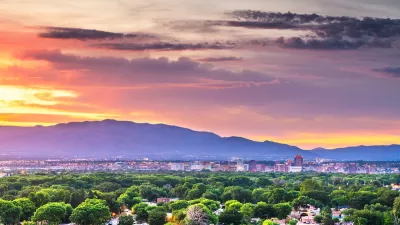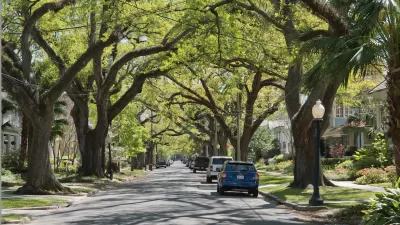Advocates for urban greening are asking the city to boost its tree planting efforts and protect existing trees, which are a key tool for fighting the effects of climate change and worsening heat waves.

In a commentary piece in the Chicago Tribune, Daniella Pereira, vice president of community conservation at Openlands, and Naomi Davis, founder and CEO of Blacks in Green, call on Chicago’s leaders to make a stronger commitment to protecting the city’s tree canopy through comprehensive efforts to preserve existing trees when possible and ensure equitable distribution of resources across the city’s neighborhoods.
It is a disgrace that while $46 million worth of street trees will be planted, our existing healthy and large canopy trees continue to be removed through aldermanic privilege and a Department of Water Management that follows practices contrary to the mayor’s edict. Chicago already has a low tree canopy, and with the removal to planting ratio being 2 to 1, 75,000 trees will not even replace the canopy of what continues to be removed.
Even with tree planting efforts, the authors point out that “Without saving the existing canopy, it will be decades for these young trees to offer the same environmental and health benefits to communities that need them the most now.” The authors claim that “Chicago’s Department of Water Management continues to remove all trees in their way. These trees, the one appreciating asset we have in the city, are then not replaced. In all other cases, when trees are requested to be removed, a forester inspects the tree and, if healthy, denies the request.”
According to Pereira and Davis, “The city needs to have a driver of a strategic urban forestry management plan and a tree canopy goal strategy as a minimum, for each community area.” Furthermore, “That strong vision should be followed by strong tree protection ordinances, policies, interdepartmental communication and public engagement.”
FULL STORY: To fight climate change, Chicago should maintain, strengthen its tree canopy

Maui's Vacation Rental Debate Turns Ugly
Verbal attacks, misinformation campaigns and fistfights plague a high-stakes debate to convert thousands of vacation rentals into long-term housing.

Planetizen Federal Action Tracker
A weekly monitor of how Trump’s orders and actions are impacting planners and planning in America.

In Urban Planning, AI Prompting Could be the New Design Thinking
Creativity has long been key to great urban design. What if we see AI as our new creative partner?

King County Supportive Housing Program Offers Hope for Unhoused Residents
The county is taking a ‘Housing First’ approach that prioritizes getting people into housing, then offering wraparound supportive services.

Researchers Use AI to Get Clearer Picture of US Housing
Analysts are using artificial intelligence to supercharge their research by allowing them to comb through data faster. Though these AI tools can be error prone, they save time and housing researchers are optimistic about the future.

Making Shared Micromobility More Inclusive
Cities and shared mobility system operators can do more to include people with disabilities in planning and operations, per a new report.
Urban Design for Planners 1: Software Tools
This six-course series explores essential urban design concepts using open source software and equips planners with the tools they need to participate fully in the urban design process.
Planning for Universal Design
Learn the tools for implementing Universal Design in planning regulations.
planning NEXT
Appalachian Highlands Housing Partners
Mpact (founded as Rail~Volution)
City of Camden Redevelopment Agency
City of Astoria
City of Portland
City of Laramie





























